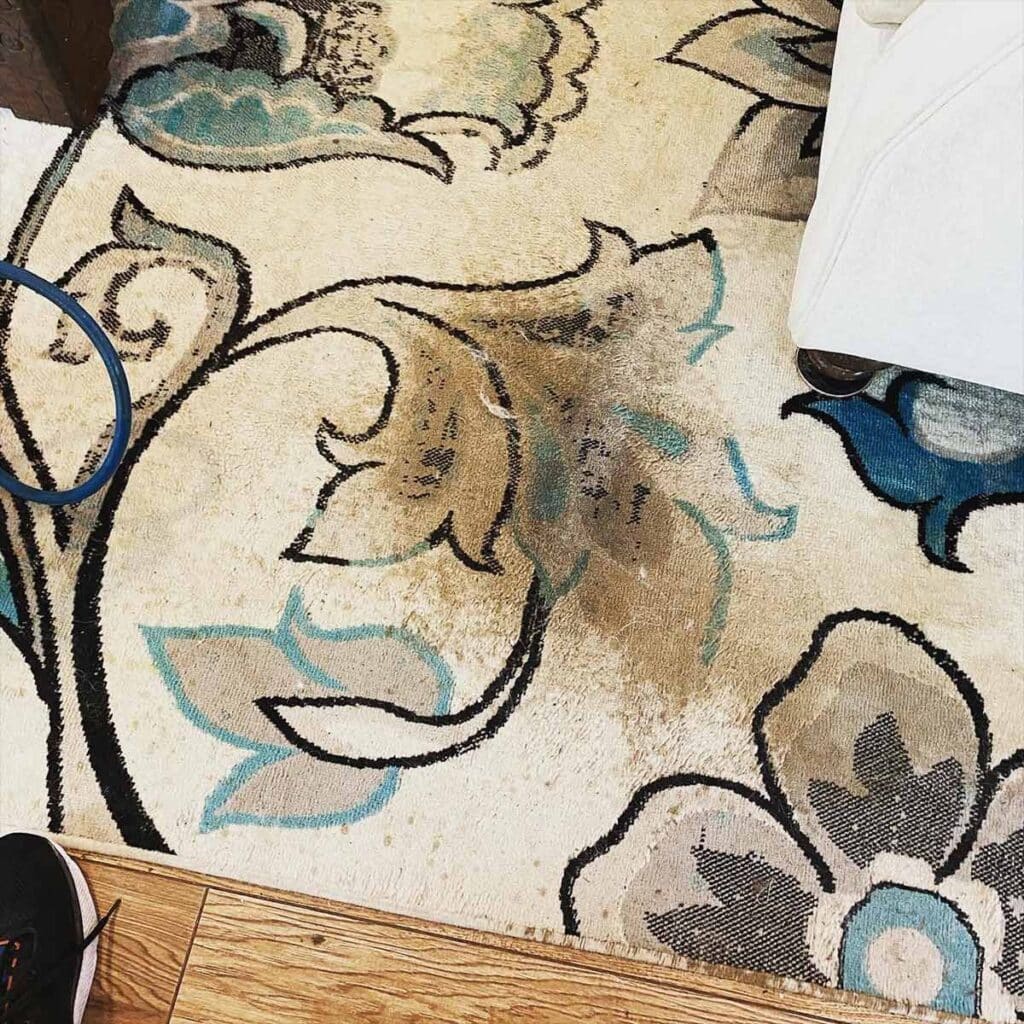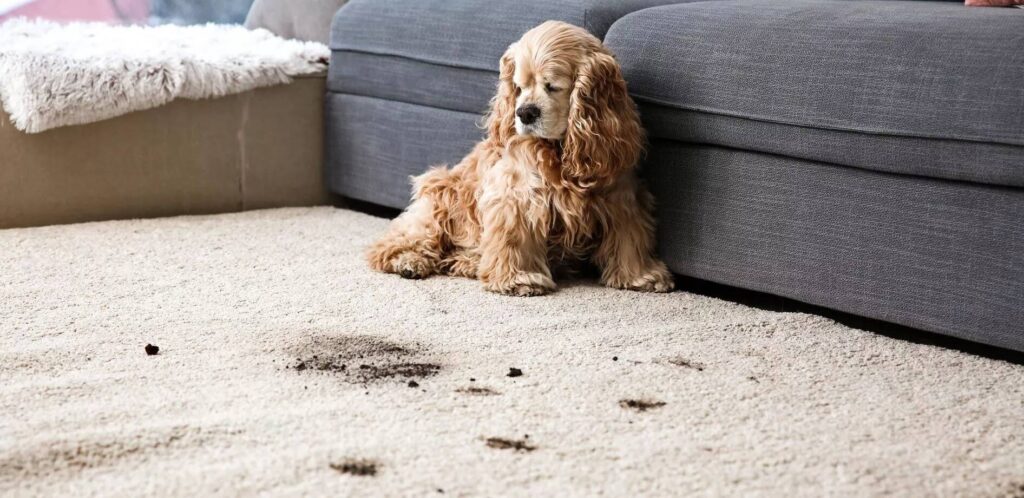How to Get Rid of Cat Pee Smell?
Do you own a pet and want to get rid of lingering unpleasant odors caused by them, especially the notorious smell of cat urine? You don’t have to succumb to the smells forever – there are plenty of effective ways that will help manage pet odors and make your home feel like an oasis again. In this blog post, we’ll cover everything from choosing a suitable cleaning product for cat urine smell removal, as well as what cautionary steps should be taken regarding stubborn stains & surface materials so that you can enjoy the pleasant aromas without any side-effects. Read on with confidence knowing that by the end of this blog post you will be an expert in managing pet odors!
Identifying the Source of the Smell – What Causes Cat Urine Odor
Cat urine is known to have a distinct and potent odor, which sets it apart from other types of urine. This can be attributed to the high concentration of urea, a compound that naturally breaks down into ammonia over time. As a result, cat urine develops its strong and unpleasant smell. Additionally, felinine, another compound found in cat urine, plays a role in creating the unique scent. When cats urinate, felinine breaks down into sulfur compounds, further contributing to the pungent odor.

To effectively address the issue of cat urine odor, it is crucial to identify the source of the smell. It could be a soiled carpet, a favorite corner where the cat frequently urinates, or even a hidden spot behind furniture. In some cases, it can be challenging to locate old or dried stains that continue to emit an unpleasant smell. However, the use of a UV light can be a useful tool in detecting these hidden stains that are not visible to the naked eye.
By understanding the composition and nature of cat urine, as well as employing effective detection methods, it becomes possible to tackle the issue of unpleasant odors and ensure a clean and fresh environment.
Choosing a Suitable Cleaning Product – What to Look for in an Odor Removing Product
Choosing the right cleaning product is a critical step in effectively eliminating cat urine odors. You should look for an enzymatic cleaner, specifically designed to break down the urea and felinine compounds found in cat urine. These cleaners work by using natural enzymes that target and decompose the odor-causing compounds, neutralizing the smell instead of merely masking it.
When selecting a product, be sure to check whether it’s safe for your specific surface. Some cleaners might discolor fabrics or stain certain materials, so always do a patch test before applying the product extensively. Additionally, consider the environmental impact of the product. Ideally, you should opt for cleaners that are biodegradable and free from harsh chemicals that could harm the environment.
Lastly, look for a product with a pleasant scent that will not only neutralize the cat urine odor but also leave your home smelling fresh and clean. Remember, managing pet odors effectively requires a combination of the right tools, products, and methods.
The Right Way to Clean Up Cat Urine Spills – Techniques to Achieve Maximum Effect
Cleaning up cat urine spills requires a methodical approach to ensure maximum effectiveness. Follow these steps for the best results:
- Immediate Action: As soon as you notice the spill, act swiftly to prevent the urine from seeping into the material. Blot the area using paper towels or an absorbent cloth, applying pressure to soak up as much urine as possible. Avoid rubbing or scrubbing as this can spread the urine and embed it deeper.
- Apply Cleaner: Next, apply your chosen enzymatic cleaner liberally over the area, ensuring it reaches any urine that may have penetrated deeper into the material. Follow the product instructions carefully – some cleaners need to be left to soak for a period before blotting.
- Blot Again: After the cleaner has had time to work, blot the area again with a dry cloth to absorb any remaining moisture. Repeat this process if necessary until no more urine or cleaner can be absorbed.
- Air Dry: Let the area air dry naturally. This step is crucial as the natural drying process allows the enzymes in the cleaner to continue breaking down the urine compounds.
- Odor Check: Finally, once the area is completely dry, perform an odor check. If you can still detect a hint of cat urine smell, repeat the cleaning process.
Remember that patience is key when dealing with cat urine spills, as the cleaning process often needs to be repeated to completely eradicate the smell.
Cautions & Warnings – Things to Be Aware of When Removing Pet Odors
When attempting to remove pet odors, especially those caused by cat urine, it’s important to be aware of some key precautionary measures to ensure the safety both of your home and of your pets.
- Test Surface Compatibility: Before applying any cleaner to a larger area, always perform a patch test on a small, hidden portion of the material in question. This will ensure the product does not discolor or damage the material.
- Check for Pet-Friendly Products: Not all cleaning products are safe for pets. Always read labels carefully to ensure the product is non-toxic and pet-friendly. Certain chemicals can be harmful or irritating to pets, so it’s crucial you ensure their safety while cleaning.
- Avoid Ammonia-Based Products: Ammonia is a component of cat urine, and using cleaning products that contain ammonia can attract your cat back to the same spot, leading to repeated incidents in the same area.
- Don’t Over Saturate: When applying cleaner, ensure you don’t oversaturate the area as excessive moisture can lead to mildew or mold growth, which can cause additional unwanted odors and potential health risks.
- Ventilate The Area: While cleaning, make sure the area is well ventilated. This will help disperse fumes of the cleaning product, reducing potential irritation for you and your pets and speeding up the drying process.
Remember, while it’s important to maintain a clean and odor-free home, the safety and well-being of your pets should always be a priority. Following these cautions and warnings will help you effectively manage pet odors while ensuring a safe environment for your furry friends.

Simple Tips on How to Prevent Pet Odors from Returning
Preventing the return of pet odors involves maintaining a clean environment, regular training, and effective cleaning habits. Here are a few simple tips:
- Regular Cleaning: Make a habit of regularly cleaning areas where your pet spends most of their time. This includes their bedding, play areas, and litter boxes for cats. Regular cleaning can keep pet odors at bay and ensure a fresh and clean environment.
- Immediate Clean-up: Accidents happen, but immediate clean-up can prevent the odor from setting into your furnishings. Using an enzymatic cleaner immediately after an accident will neutralize the odor right at its source.
- Litter Box Maintenance: For cat owners, regular litter box maintenance is a must. Keep it in a well-ventilated area and clean it daily. Also consider using clumping litter, which can help control odor.
- Regular Grooming: Regular grooming of your pet can also help control odors. Regular baths, along with dental and ear cleaning, can keep your pet smelling fresh.
- Diet: Feeding your pet high-quality food can also reduce odors. Cheap, low-quality food can lead to digestion problems, resulting in smelly stools.
- Pet Training: If your pet is not yet toilet trained, consider investing time in training them. This not only helps prevent accidents (and therefore odors) but also promotes better pet behavior.
Remember, the key to preventing pet odors from returning lies in ongoing maintenance, prompt action, and the right approach to pet hygiene.
In conclusion, managing pet odors effectively requires a combination of techniques and products tailored to your home and pets. Cleaning up cat urine spills immediately, using enzymatic cleaners, and taking precautionary measures can help achieve maximum effectiveness in removing pet odors. Regular cleaning, maintenance of litter boxes, proper grooming, and a high-quality diet for your pets are also crucial in preventing the return of pet odors. With these tips in mind, you can maintain a fresh and odor-free home for both you and your beloved pets.
https://www.google.com/maps?cid=16598579898065582400
